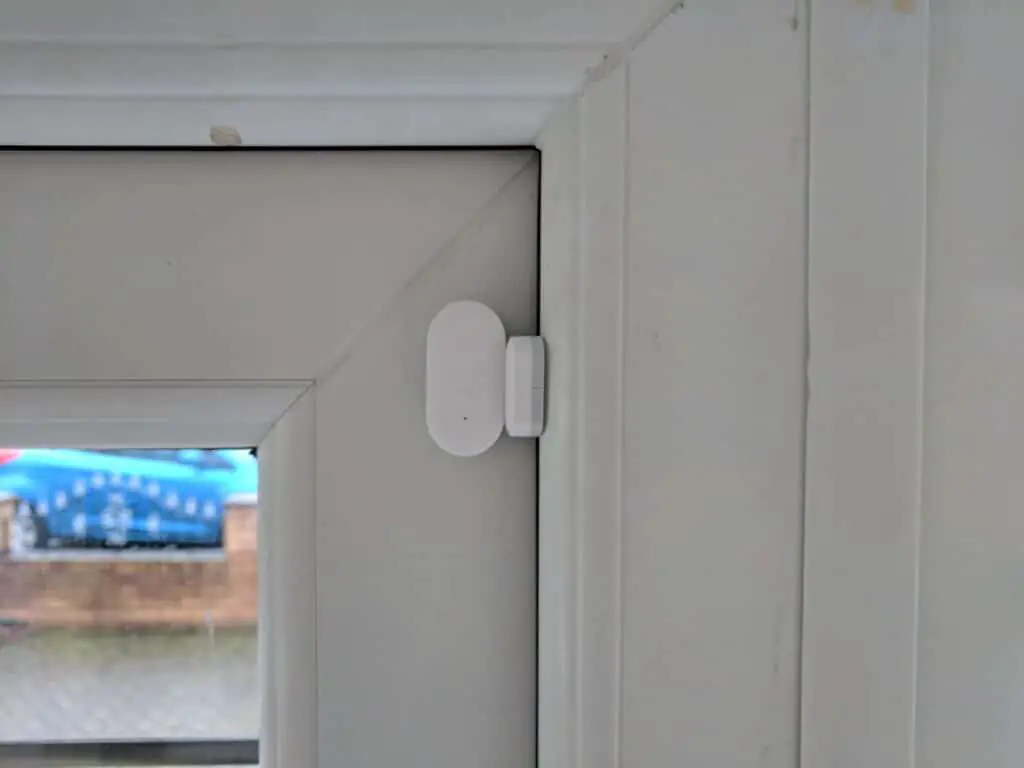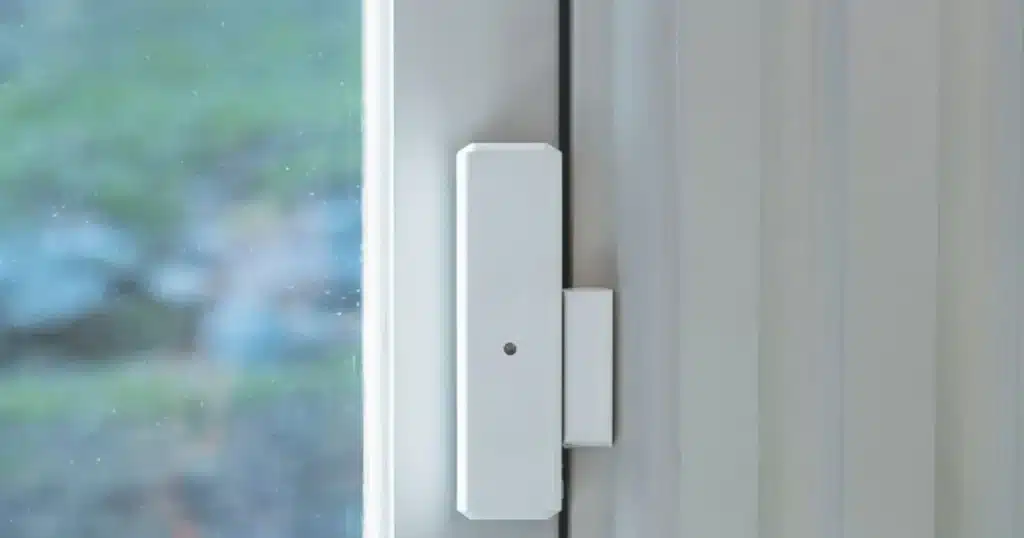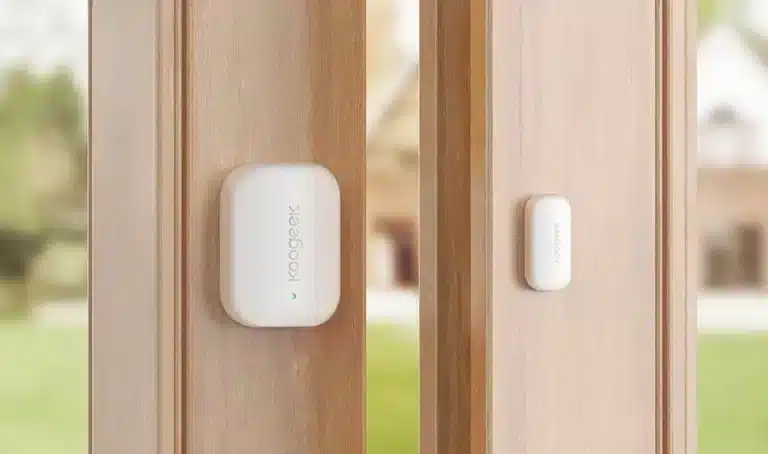Introduction
What Size Wire For Garage Door Sensors: Garage door sensors are an essential component of any garage door system. As they play a crucial role in ensuring the safety and security of your property. These sensors are responsible for detecting any obstructions or objects in the path of the garage door. Preventing accidents and damage. However, when it comes to installing or replacing garage door sensors, one important consideration is the size of the wire to be used.
Choosing the right size wire for your garage door sensors is vital to ensure proper functionality and reliability. The wire size determines the amount of current that can flow through it, and using an incorrect wire size can lead to various issues. Such as signal interference, voltage drop, or even damage to the sensors themselves.
The wire size for garage door sensors typically depends on the distance between the sensors and the control panel or receiver. In general, it is recommended to use 22-gauge or 18-gauge wire for most residential garage door sensor installations. These wire sizes are commonly used in low-voltage applications and provide sufficient current carrying capacity for the sensors to function optimally.

Can I use 14 gauge wire for garage door opener?
When it comes to installing a garage door opener, it is important to ensure that you are using the correct gauge wire. The gauge of the wire refers to its thickness, with a lower gauge number indicating a thicker wire. In the case of a garage door opener, it is generally recommended to use a 14 gauge wire.
Using a 14 gauge wire for a garage door opener is ideal because it can handle the electrical load required by the opener without overheating or causing any safety issues. The electrical load of a garage door opener can vary depending on the model and brand, but a 14 gauge wire is typically sufficient for most residential garage door openers.
Garage Door Opener
Using a wire with a higher gauge, such as 16 or 18, may not be able to handle the electrical load of the opener and could potentially overheat. This can lead to a malfunctioning opener or even a fire hazard. It is always best to err on the side of caution and use a wire that is rated for the specific electrical load of your garage door opener.
Additionally, using a 14 gauge wire ensures that you are meeting the electrical code requirements for your area. Electrical codes are in place to ensure the safety of electrical installations and using the correct gauge wire is an important part of complying with these codes. It is always a good idea to consult with a licensed electrician or refer to the manufacturer’s instructions for your specific garage door opener to determine the recommended wire gauge.
A 14 gauge wire for a garage door opener is generally recommended. It can handle the electrical load required by the opener without overheating and ensures compliance with electrical codes. However, it is always best to consult with a professional or refer to the manufacturer’s instructions for specific recommendations for your garage door opener.
What gauge wire for automotive sensors?
When it comes to automotive sensors, choosing the right gauge wire is crucial for ensuring proper functionality and reliability. The gauge of wire refers to its thickness, with lower gauge numbers indicating thicker wires. The wire gauge you should use for automotive sensors depends on various factors. Including the type of sensor, its power requirements, and the distance between the sensor and the control unit.
One important consideration when selecting the wire gauge for automotive sensors is the power requirements of the sensor. Some sensors require more power than others, and using a wire with a gauge that is too thin can result in voltage drop and reduced performance. It is important to consult the sensor’s specifications or the manufacturer’s recommendations to determine the appropriate wire gauge for the specific sensor.
Automotive Sensors
Another factor to consider is the distance between the sensor and the control unit. If the sensor is located far away from the control unit. A thicker wire may be necessary to minimize voltage drop over the distance. Thicker wires have lower resistance, which helps maintain a consistent voltage level even over longer distances. On the other hand, if the sensor is located close to the control unit, a thinner wire may be sufficient.
The type of sensor also plays a role in determining the appropriate wire gauge. Some sensors, such as temperature or pressure sensors. May have lower power requirements and can be adequately powered using thinner wires. However, sensors that require higher power, such as oxygen sensors or mass airflow sensors. May require thicker wires to ensure proper power delivery.
The right gauge wire for automotive sensors is essential for optimal performance and reliability. Factors such as power requirements, distance, and sensor type should be taken into account when determining the appropriate wire gauge. Consulting the sensor’s specifications or the manufacturer’s recommendations can help ensure the correct wire gauge is chosen for each specific sensor.
What voltage is a garage door sensor wire?
The voltage of a garage door sensor wire typically depends on the type of sensor being used. Garage door sensors are designed to detect obstacles or obstructions in the path of the door. Ensuring the safety of people and property. These sensors are usually connected to the garage door opener through a wire, which carries the necessary electrical signals.
Most garage door sensors operate on low voltage, typically around 12 to 24 volts. This low voltage is considered safe for residential use and reduces the risk of electrical shock. The specific voltage required for a garage door sensor wire can vary depending on the manufacturer and model of the sensor.
It is important to note that the voltage of the sensor wire is not the same as the voltage supplied to the garage door opener itself. The garage door opener is usually connected to a standard household electrical outlet and operates on 120 volts or 240 volts, depending on the power requirements.
The sensor wire is responsible for transmitting the signals from the sensors to the garage door opener. Indicating whether there is an obstruction in the path of the door. These signals are typically low voltage and are used to trigger the safety mechanisms of the garage door opener. Such as reversing the door’s movement if an obstruction is detected.
Overall, the voltage of a garage door sensor wire is typically low, ranging from 12 to 24 volts. This low voltage ensures the safety of users and reduces the risk of electrical shock. It is important to consult the manufacturer’s specifications or a professional installer to determine the specific voltage requirements for your garage door sensor wire.
What wire is best for garage wiring?
When it comes to garage wiring, it is important to choose the right wire that can handle the electrical load and provide a safe and reliable connection. There are several factors to consider when selecting the best wire for garage wiring, including the type of wiring needed. The electrical load requirements, and the local building codes.
One of the most commonly used wires for garage wiring is the THHN wire. THHN stands for Thermoplastic High Heat-resistant Nylon, and it is a type of wire that is commonly used in residential and commercial applications. This wire is known for its high temperature resistance and durability. Making it suitable for use in garages where there may be exposure to heat and other harsh conditions.
Another popular option for garage wiring is the Romex wire. Romex is a brand name for a type of electrical wire that is commonly used in residential applications. It is a non-metallic sheathed cable that consists of two or more insulated conductors and a bare ground wire. Romex wire is easy to install and is suitable for use in dry locations, making it a good choice for garage wiring.
For garages that require wiring for heavy-duty equipment or high electrical loads. It may be necessary to use a larger gauge wire. The gauge of a wire refers to its diameter, with a smaller gauge number indicating a larger wire size. A larger gauge wire can handle more electrical current and is therefore better suited for high-load applications. It is important to consult the local building codes and electrical regulations to determine the appropriate wire gauge for the specific electrical load requirements of the garage.
Can I use any sensor for my garage door?
When it comes to choosing a sensor for your garage door, there are several factors to consider. While it may be tempting to use any sensor that is readily available. It is important to ensure that the sensor you choose is compatible with your garage door system and meets your specific needs.
Firstly, it is important to understand the different types of sensors that are commonly used for garage doors. The most common type of sensor is a photoelectric sensor. Which uses a beam of light to detect objects in its path. This type of sensor is typically used to prevent the garage door from closing if there is an obstruction in its path.
Secondly, you need to consider the compatibility of the sensor with your garage door system. Different garage door systems may require different types of sensors. So it is important to consult the manufacturer’s guidelines or seek professional advice to ensure that the sensor you choose is compatible with your specific system.
Thirdly, you should consider the specific features and capabilities that you require from a sensor. Some sensors may offer additional features such as motion detection or smartphone connectivity. Which can enhance the security and convenience of your garage door system. It is important to assess your needs and choose a sensor that offers the features that are most important to you.
Lastly, it is important to consider the quality and reliability of the sensor. Garage door sensors are an important component of your home security system. So it is crucial to choose a sensor that is durable and built to last. Reading customer reviews and seeking recommendations from trusted sources can help you determine the reliability of a particular sensor.
Garage Door
The recommended wire size for garage door sensors is typically 22 or 24 gauge. These gauges are commonly used for low voltage applications such as garage door sensors. The smaller the gauge number, the thicker the wire. So 22 or 24 gauge wires are suitable for the low voltage requirements of garage door sensors.
Using the recommended wire size ensures that the sensors receive a consistent and reliable power supply. It also helps to prevent voltage drop, which can affect the performance of the sensors. Additionally, using the correct wire size reduces the risk of overheating or electrical hazards.
How do I determine the appropriate wire gauge for my garage door sensors?
When determining the appropriate wire gauge for your garage door sensors, there are a few factors to consider. The first is the distance between the sensors and the control panel. The longer the distance, the thicker the wire gauge should be to ensure proper signal transmission. It is recommended to use a wire gauge of at least 22 AWG for distances up to 50 feet, and a thicker gauge for longer distances.
Another factor to consider is the power requirements of your garage door sensors. If your sensors require a higher voltage or current. A thicker wire gauge may be necessary to handle the increased load. It is important to consult the manufacturer’s specifications for your specific sensors to determine the appropriate wire gauge.
In addition to distance and power requirements, it is also important to consider the environmental conditions in which your garage door sensors will be installed. If the sensors will be exposed to extreme temperatures or moisture. A thicker wire gauge may be necessary to ensure durability and reliable operation.
Are there any specific requirements for the wire size when installing garage door sensors?
When it comes to installing garage door sensors, there are indeed specific requirements for the wire size that should be followed. The recommended wire size for garage door sensors is typically 22 AWG (American Wire Gauge). This wire size is commonly used for low-voltage applications and is suitable for the power requirements of most garage door sensors.
Using the appropriate wire gauge is crucial for ensuring the proper functioning and reliability of your garage door sensors. If the wire size is too small, it may not be able to handle the current required by the sensors. Leading to potential malfunctions or even damage to the sensors themselves. On the other hand, if the wire size is too large, it can be unnecessarily expensive and difficult to work with.
It is important to note that while 22 AWG is the recommended wire size for garage door sensors. There may be variations depending on the specific manufacturer or model of the sensors you are using. Therefore, it is always a good idea to consult the installation manual or guidelines provided by the manufacturer to ensure you are using the correct wire size for your particular sensors.
Can I use any wire size for connecting garage door sensors, or is there a specific range to follow?
When it comes to connecting garage door sensors. It is important to use the appropriate wire size to ensure proper functionality and safety. While you may be tempted to use any wire size that is readily available. It is recommended to follow a specific range for optimal performance.
The recommended wire size for garage door sensors is typically 22 to 18 gauge. This range is suitable for most residential garage door systems and provides a good balance between durability and flexibility. Using a wire that is too thin may result in signal loss or interference. While using a wire that is too thick can be difficult to work with and may not fit properly in the sensor terminals.
It is also important to consider the distance between the garage door sensors and the control panel. If the sensors are located far away from the control panel, it is advisable to use a slightly thicker wire to compensate for any potential voltage drop over the distance.
Are there any safety considerations or regulations regarding the wire size used for garage door sensors?
When it comes to the wire size used for garage door sensors. There are indeed safety considerations and regulations that need to be taken into account. The wire size plays a crucial role in ensuring the proper functioning and safety of the sensors.
First and foremost, it is important to follow the manufacturer’s recommendations for the wire size. Different garage door sensor models may have specific requirements for the wire gauge to be used. This is because the wire size directly affects the electrical current flow and resistance. Which in turn impacts the sensor’s performance.
Additionally, local building codes and regulations may also dictate the minimum wire size that should be used for garage door sensors. These codes are put in place to ensure the safety of the installation and to prevent any potential hazards. It is crucial to consult these regulations and adhere to them to avoid any legal or safety issues.

Conclusion
The size of wire to use for garage door sensors, it is important to consider several factors. Firstly, the distance between the sensors and the control panel should be taken into account. If the distance is relatively short, a smaller gauge wire may be sufficient. However, if the distance is longer, a larger gauge wire may be necessary to ensure proper signal transmission.
Additionally, the power requirements of the sensors should be considered. Some sensors may require a higher voltage or current, which may necessitate the garage door sensor use of a larger gauge wire to handle the increased power load. It is important to consult the manufacturer’s specifications for the sensors to determine the appropriate wire size.
Furthermore, the environmental conditions in which the sensors will be installed should be taken into consideration. If the sensors will be exposed to extreme temperatures or moisture, a wire with a higher level of insulation may be required to protect against damage or signal interference. Again, consulting the manufacturer’s recommendations can help determine the appropriate wire size and insulation level.

